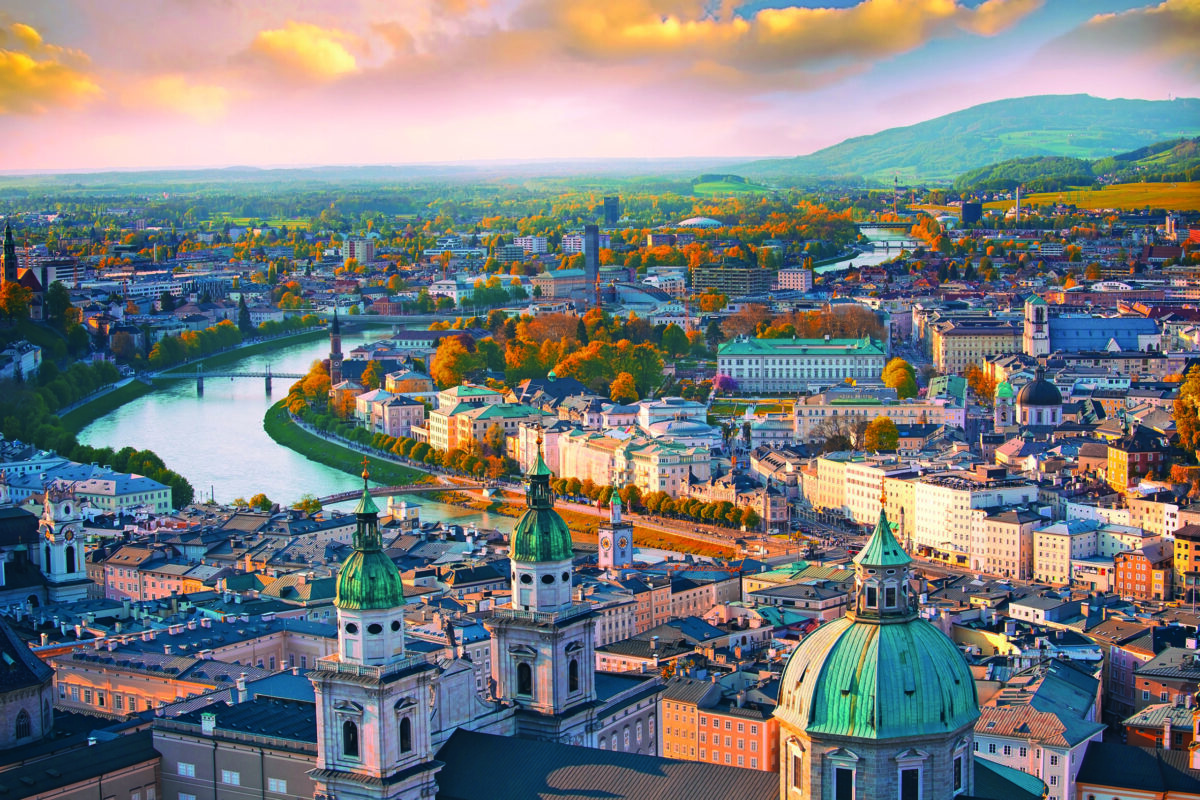Satisfied citizens, strong economy

For years, Vienna has been “the world’s most liveable city”, or at least at the top of this list. The country is considered to be one of the countries of the world that are home to the wealthiest and the happiest people: 16th on the global GDP (PPP) per capita list, and 11th on the list of countries with the happiest residents. It is also the number 1 destination for the emigration of Serbian citizens. All this tells us that the Austrians must be doing something right!
The Austrian economy is defined as socially responsible market economy, with private and public companies intertwining. The state is a strong economic factor: basic activities were nationalized after the end of World War II. There is also a strong Mittelstand, that is, as in Germany, a stratum of small and medium-sized enterprises of domestic origin that “pushes” their own economy – not expecting too much from direct foreign investment. If they come, they are welcome. All this makes Austria one of the most prosperous and developed countries in Europe.
SOCIAL RESPONSIBILITY = SATISFIED CITIZENS = STRONG ECONOMY
So, Austria has a well-developed economy thanks to the large structure of its market, a structure reflected in the high living standard of its inhabitants. After the initial social revolution after 1945, much of the industry was nationalized again in the 1980s, although privatization reduced the size of the state part of the economy to a level comparable to other European economies. Labour movements are particularly strong in Austria and have a strong influence on the labour policy – they were strong immediately after World War II when the culture of subsidized housing was introduced in Vienna during the “Rotes Wien” or Red Vienna. Since joining the European Union in 1995, Austria has implemented profound structural reforms, such as the liberalization of telecommunications, energy and tobacco, the privatization of banks, the steel and oil industries. This was followed by mergers of domestic companies with foreign ones, in sectors such as food, trade, construction, banking, steel, oil, tobacco and telecommunications. And yet, in 2012, it had one of the lowest unemployment rates in the entire Europe, around 4.3%, thanks to its socially responsible labour policy. The policy of neutrality has also paid off many times over, because Austria, like Finland, Sweden or Switzerland, has always been a “welcome guest” everywhere, both politically and economically.
OPEN THE EASTERN GATE!
The thing that traditionally “pulled” but also degraded the Austrian economy, depending on the situation in theor northern neighbour, Germany, is the strong connection between the Austrian and German economy. Over time, Austrian economy connected well with Italy and its economy, and due to its border position, Austria maintained strong trade ties with its neighbouring, socialist countries such as Yugoslavia, traditionally open to the West, but also Hungary and Czechoslovakia.
“All in all, it was said that other countries wage wars, while the happy Austria gets everything through marriage. And dances to the waltz beat. Austria was nicknamed “Felix Austria”, and even today, I see, the citizens of this country are still happy”
Even when changes happened in the East, Austria was the first to “jump in the wagon” and take preferential positions from Gdansk to Gevgelija. Simply put, even in the past, the Habsburg Empire had possessions in those countries, so the Austrians knew the mentality very well and were not afraid, while other Westerners hesitated. Thus, the collapse of European socialism brought Austria to a new position of a “pioneer” and a “leader” in the European East. An old proverb from the 18th century says that “Europe ends after Vienna”, and the Austrians did very well in “both worlds”.
TOURISM AS A SPECIAL TRUMP CARD – A 10%-GDP TRUMP CARD
In addition to trade, production and services, good wine, beer, chocolate and cheeses, Austria is a world’s tourist superpower. Austrian territory has been a frequent route for travellers since ancient times. With its Central European location, common borders with 8 countries (Germany, Czech Republic, Slovakia, Slovenia, Hungary, Italy, Switzerland and Liechtenstein), Austria has a long tradition of welcoming tourists. As a small country (8.2 million inhabitants), Austria welcomes about 19 million foreign visitors each year, which ranks it among the 10 most popular destinations in the world. Throughout history, the tourist flow was interrupted during the two world wars, and then by the economic crisis of the 1920s. Since the mid-1970s, the tourism industry has had to face new challenges such as excessive protectionism and political and social change. Direct revenues from the tourism sector accounted for 9.8% of GDP and always hover around 10%. Tourism in Austria is presented as a combination of culture, history, nature, sports and business. Due to the already mentioned neutrality, Austria has become a centre of international political meetings and conventions.
Austria is a haven for winter sports fans: more than 800 resorts offer 22,000 km of ski trails and 16,000 km of cross-country trails. Austria hosted the Winter Olympics twice, making the city of Innsbruck the centre of white sports. Winter tourism is a very important part of the Austrian economy. The large influx of German visitors has made this sector largely dependent on the German economy, although recently there have been changes that try to prevent tourism from depending on the German economy. These changes are turning into the creation of ski resorts such as Arlberg or Kitzbühel, which receive more and more guests from Eastern Europe, Russia and the US.
All in all, it was said that other countries wage wars, while the happy Austria gets everything through marriage. And dances to the waltz beat. Austria was nicknamed “Felix Austria”, and even today, I see, the citizens of this country are still happy.
By Žikica Milošević